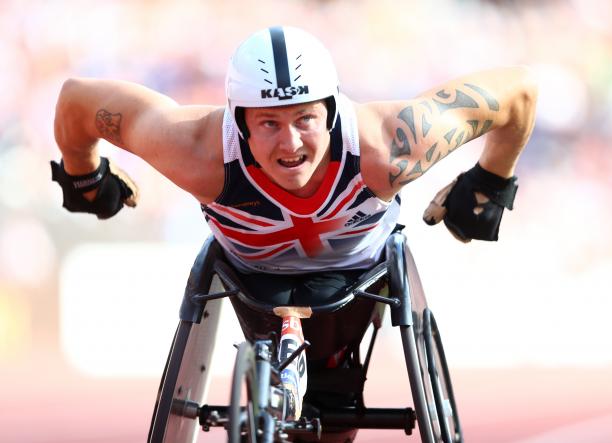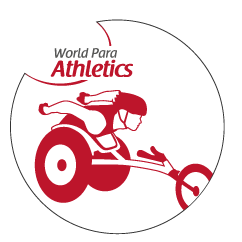Ten Questions with Great Britain’s David Weir
14.07.2015Great Britain’s multi world and Paralympic champion tells all ahead of the IPC Athletics Grand Prix Final later this month.
 Great Britain's David Weir took a year off after the London 2012 Paralympic Games and is now back on course to compete at Rio 2016.
© • Getty Images
Great Britain's David Weir took a year off after the London 2012 Paralympic Games and is now back on course to compete at Rio 2016.
© • Getty Images
Great Britain’s multiple Paralympic champion David Weir returns to London’s Olympic Park on Sunday 26 July for the IPC Athletics Grand Prix Final, part of three days of track and field action that makes up the Sainsbury’s London Anniversary Games.
Weir hit the headlines at the 2012 Games, clinching gold in the 800m, 1,500m, 5,000m and marathon (T54) in front of a jubilant home crowd.
Here the 36-year-old, who also won double gold at the Beijing Games in 2008, as well as triple gold at both the 2006 and 2011 IPC Athletics World Championships, talks to the IPC as he prepares to return to the London track for only the second time since that historic event nearly three years ago.
1.What emotions does it stir to return to the scene of your Paralympic victories?
It’s big emotions to be back on that track and racing in front of a home crowd. It’s always going to be special - I won’t feel pressured, I just love going out on that track and doing my best. I think it’s a great stadium, the atmosphere’s great, so I’m looking forward to it.
2.Thinking back to 2012, do you regard that as the pinnacle of your career, and does that make training now any more difficult or do you still have the same motivations?
It was definitely the pinnacle of my career – if you ask any athlete, they would love to compete at a home Games and win a gold medal. I didn’t just win one, I won four; I can’t see anything matching that in my lifetime, or in my career – but it doesn’t mean I haven’t got the hunger to do well, because I’m that kind of guy – if I feel enough is enough I will just stop. Yes it is difficult sometimes to be motivated, especially when it’s freezing cold – but it was like that before 2012 too.
3.It’s a tough field you are up against in London – will you feel any sort of home advantage being in the British capital?
I don’t think it happens anymore – the field is so strong and so experienced. I think a lot of them, like Marcel [Hug] have learnt to cope with that sort of big experience. Marcel seems to be coping with that pretty well at the moment; that’s what used to get to him maybe. For me it’s going to be a bit different – I’ve been a bit out of sorts for the last month, I had my shoulder injury in Switzerland so it’s been difficult to get a full month of training. I had a throat infection and tonsillitis recently too so it’s been a bit hard, but I’m getting there. I will give 100 percent on that track.
4.You’ve had some big races with five-time world champion Marcel Hug - do you regard him as just another competitor?
Yes – it’s not just him anymore, there are people that are beating him, and us. That just shows you the strength in depth in our class, and it’s good to see. There are a lot of people that can beat anyone on a given day.
5.What will it take to win at the Grand Prix Final?
Speed and tactics – I don’t think it’s going to be a fast race, I think it’s going to be a tactical race, and I think it’s going to come down to the last lap. I might be wrong, so you have to be equipped to deal with any situation –they could go out hard, they might go slow – it depends on the weather, the day, who is in the race, what groups they’ve broken up in to.
6.How important is it mentally to have a strong race - and a win – in London with the World Championships on the horizon?
It wouldn’t hurt me if I lost, because I know the situation I’ve been in the last month, and I know that there is more to give. I can’t expect anything too high, but I’ll give it 100 per cent. If I win I win, if I don’t I don’t – I don’t dwell on things like that anymore – I used to.
7.You chose not to compete at the 2013 World Championships and missed the 2014 European Championships through injury – how easy is it to regain form and maintain that hunger?
I have goals for different races that I want to perform well in and that drives me on. You have to set yourself little goals at my age to do well.
8.How proud are you to race on home soil?
I love racing [in London], I always get psyched up for the London marathon; we are well supported. Hopefully the crowds will be there. There are some strong fields, it’s going to be good to watch - it’s going to be hard. And it is good to watch live. A lot of people don’t realise what wheelchair racing is like compared to on television.
9.Do you think beyond the World Championships - and beyond your athletics career?
Rio was always in the plan – Doha wasn’t 100 per cent until a couple of weeks ago. It will be good to get some competition in and carry that through the winter programme and focus for next year. It’s hard when you are still competing to focus on anything else. There are ideas in my head; like working with the boys at the Weir Archer Academy and bringing them through – being more of a hands-on coach and guiding more juniors to senior international level.
10.Going back to Olympic Park do you reflect on how much 2012 changed your life?
I just get on with it and treat it like any other race – yes the memories will flood back but 2012 is in the past and you have to move on. I still remember it fondly when I see my medals and stuff like that – I still can’t believe that I did it. But I have to move on and carry on until I say it’s time to retire. It changed my life massively, just to be recognised as a world class athlete. That’s all I strived for years, to be recognised not just as some disabled person that does athletics for fun. People realised after 2012 that Paralympians are as good as the able bodied and that is nice to see.
The Sainsbury’s Anniversary Games coincide with National Paralympic Day, an annual celebration of para-sport in Great Britain which this year features swimming in the former London 2012 Aquatics Centre.





















